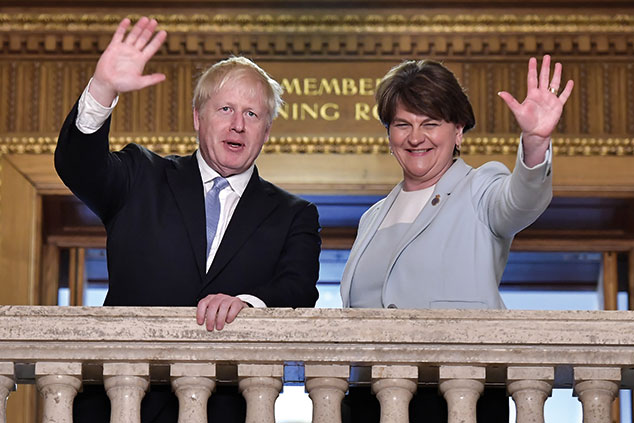
Steering a course out of the Brexit “mess” as the 31 October deadline approaches will require an “extraordinarily deft political touch”, says The Economist. Brexit, and a no-deal exit in particular, will damage the economy, leave the UK “diplomatically isolated” and poses an “existential” risk to the UK as it “wrenches at the bonds with Scotland and Northern Ireland”. Yet the Tories have “gambled”, anointing Boris Johnson as our new prime minister, and he is “nobody’s idea of a safe pair of hands”.
Johnson has sworn that he will jettison the backstop designed to avoid a hard border in Ireland and vowed to leave on 31 October, “do or die”. His new cabinet and the appointment of the “abrasive” Dominic Cummings (see page 25) as a key adviser signal a “unity of purpose and ideological purity”, says the Financial Times. The new chancellor, Sajid Javid, has announced “significant extra funding” – expected to be in the region of £1bn – for steps to prepare Britain for leaving the EU on 31 October, come what may, adds Rowena Mason in The Guardian.
Yet his critics think that the idea that adequate no deal preparations can be in place in 100 days is “fanciful”, says Andrew Sentance in The Daily Telegraph. “Strong actions, moreover, provoke strong reactions,” says the Financial Times; and the number of Tories prepared to “bring down his government if Brussels proves impervious to his charms” is growing.
Get set for an autumn election
Meanwhile, senior EU figures are warning that Johnson’s approach will not work, says James Blitz, also in the Financial Times. In fact, many commentators think that Johnson has deliberately “set the bar very high” to prepare for an autumn election. Since becoming prime minister, support for the Tories has jumped six points to 31%, giving them a ten-point lead over Labour, according to a Sunday Times poll. If Brussels refuses to agree to his demands and he then presses for a no-deal Brexit and is rejected by the Commons, he can go to the country and say, “Everyone’s obstructing me. I am only the person who can deliver the will of the people”.
However, even if Johnson is re-elected with a decent majority (as it stands, the government’s working majority will fall to just one seat if the Liberal Democrats win the Brecon and Radnorshire by-election on Thursday), it’s unclear that he will persist with the huge economic risk of no deal. He has described the chances of a no-deal Brexit as “vanishingly small”, says Anna Mikhailova in The Daily Telegraph, claiming he wants instead to strike a new deal with Brussels that would extend the existing one-year transition period of the withdrawal agreement by up to a year to allow a free-trade deal to be negotiated, after which point there would be no backstop. This would mean that the UK would remain in the customs union and single market for another two years, and could involve an additional payment to Brussels. However, Johnson emphasised that it was the EU’s “call” if they “wanted to strike a deal”, adding, “It is absolutely vital that we are able to walk away.”
In this scenario, the prime minister may be hoping that an election and an increased majority will let him pass a deal with a “Northern Ireland-only backstop”, says Anand Menon of the think tank UK in a Changing Europe. This was the EU’s original idea, and it would guarantee an invisible border across Ireland by “tying Northern Ireland into Europe’s single market”. The idea is “anathema” to the Democratic Unionist Party as it would mean “drawing a regulatory line down the Irish Sea”. But if Johnson had a large enough majority, the DUP and its allies would “not have the numbers to stop him”.